Dashnor Kaloçi
Memorie.al publishes some unknown documents made public years ago by the International Institute for Peace Studies based in Stockholm, Sweden (SIPRI), which provided documents with protocols, resolutions and conventions of meetings held by the Assembly General Assembly of the United Nations based in New York, where the problem of banning the production and use of chemical and bacteriological weapons of mass destruction was discussed, with the participation of the People’s Republic of Albania, which abstained or did not participate at all in those meetings.
Like all other weapons, that of Chemistry (which was later renamed: ADM Mass Weapons Defense Weapons), until 1960, Albania came from the Soviet Union and, after the break with Moscow, they came from China, according to orders placed by the Ministry of Defense. Those weapons came from China by trans-oceanic steamers and were transported by hiding them under barns filled with grain, as, under international law, their production, transportation, sale and storage were not allowed. For this, in the Suez Canal, there were strong controls.
Testimony of former soldier Memush Habilaj, a chemical engineer by profession, who for several years has served as Director of the Central Laboratory of Chemical Studies and Research at the Ministry of Defense, regarding the order of Mehmet Shehu in the late ’70s – where, by his order, the study and design of a line for the production of Iprit was carried out, where the design of plants for the production of other LHLs (War Poisons) was foreseen. In the giant, top secret project, codenamed “Object 100 plus 300”, which was designed to be built behind Mount Dajti, was calculated, among other things, the production of chemical ammunition for Artillery and Aviation weapons. After the elimination of the so-called “Xhevdet Mustafa Gang”, in September 1982, in the Central Laboratory of the Army, significant quantities of LHL (War Poisonous) psychic type “BZ” (to fall asleep) were produced, intended to be used against terrorist elements and groups.
The problem of chemical weapons of mass destruction, which were inherited from the communist regime before the 1990s and which remained stocks in the depots and tunnels of the Albanian Army everywhere from south to north, a few years ago became the object and occupied the front pages of the prestigious American newspaper “Washington Post”. Regarding this fact, in addition to the testimony of Memush Habilaj, one of the former senior military personnel of the General Staff at the Ministry of Defense in Tirana, who during the years of the communist regime of Enver Hoxha served as a chemical engineer and Director of the Central Research Laboratory Chemicals at that ministry, that thing, ie the problem of those weapons, is also made known by some documents of the International Institute for Peace Studies (SIPRI) based in Stockholm, Sweden. The institute, which has been established since the First World War, has regularly published all the meetings held by the General Assembly of the United Nations, in which Albania also participated, in which the problems of banning weapons of mass destruction were discussed. mass (Biological, Chemical and Nuclear) and relevant resolutions adopted there for those weapons. But what is said in the documents published by that institute, about Albania’s attitude towards weapons of mass destruction in the meetings of the General Assembly of the United Nations and what the former senior military of the Ministry of Defense testifies about those weapons?
Albania abstains from the Resolution in 1966
One of the meetings of the UN General Assembly, where the problem of banning weapons of mass destruction was discussed, is that of 1966, where a special resolution was adopted to ban them. That resolution was passed with the votes of 91 countries in the world and four abstentions. Among the four countries that abstained, Albania was first, followed by Cuba, France and Gabon. The resolution states, among other things:
“The General Assembly, led by the United Nations and applicable international law, considers weapons of mass destruction an incompatible danger with the norms of civilization and affirms a strict observance of international laws and rules of development. wars, is interested in maintaining the standards of civilization. “Referring to the Geneva Protocol on the Prohibition of the Use of Toxic Suffocating Gases and the Methods of Bacteriological Warfare, it invites all States to adopt the 1925 Geneva Protocol.”
Albania’s justification for abstentions
According to documents published by the International Peace Institute, based in Stockholm, Sweden, another meeting on the prohibition of weapons of mass destruction was held by the UN General Assembly on April 10, 1972., where a special convention was adopted to ban the production and use of those weapons. In the long list of those states that have ratified and signed that convention, and those that have abstained, Albania does not appear at all, which means that it did not participate in that UN meeting. A few months later, in August 1972, another meeting was held, in which Albania also participated. At that meeting, in accordance with the Geneva Protocol, a special convention on the prohibition of Biological Weapons was adopted, but, as in 1966, at that meeting Albania did not vote in favor of the resolution, but as usual she abstained. One of the main reasons that the Albanian government of that time found as an argument not to vote in favor of the adoption of those resolutions, according to her, was the fact that those resolutions were not respected by any of the states that adopted them. Thus, Albania did not sign those resolutions, citing as an argument the fact that even the Soviet Union and the United States were not disarming. In the Albanian press of that time, the convention approved by the UN General Assembly in August 1972 was considered as: “The fruit of the cooperation of the American imperialists and the Soviet revisionists, to confuse the world public opinion and to create the impression that “Something is being done in the field of disarmament.” Likewise, according to documents published by the International Institute for Peace Studies (SIPRI), it is said that in addition to Albania, France did not adopt that 1972 resolution.
Testimony of the ex-military: “Mehmet Shehu ordered the industrial production of Iprit in Dajt”
But what were the chemical weapons of mass destruction that the Albanian state had at its disposal during the communist regime of Enver Hoxha, where were those weapons imported, where were they stored and what was their danger? Regarding this, the former senior military officer, Memush Habilaj, who for several years has also served as Director of the Central Laboratory of Chemical Studies and Research of the Albanian Army, among others in his exclusive testimony for Memorie.al, states: Like all other armaments, that of Chemistry (which was later renamed: ADM Mass Weapons Defense Weapons), until 1960, we came from the Soviet Union and, after the break-up with Moscow , they came to us from China, according to orders placed by our Ministry of Defense. Those weapons came from China by steamer and were transported by hiding them under barns filled with grain, as their production, transportation, sale and storage were not permitted under international law. For this, in the Suez Canal, there were strong controls. During the period when Mehmet Shehu was Prime Minister and Minister of Defense, by his order, the study and design of a line for the production of Iprit was carried out, where the design of plants for the production of other LHLs was foreseen. In the giant, top-secret project, codenamed “Object 100 plus 300”, the production of Chemical ammunition for Artillery and Aviation weapons was calculated, among others. After the elimination of the so-called “Xhevdet Mustafa Gang”, in September 1982, in the Army Central Laboratory, significant quantities of “BZ” type (LZL) (to put to sleep) psychics were produced. intended to be used against terrorist elements and groups. Until the beginning of the ’90s, these weapons were in the arsenal of the Albanian Army, then their fate is unknown. Biological, Nuclear and Chemical weapons are included in the weapons of mass destruction, according to already known definitions. Of these three types of weapons of mass destruction, Albania had only War Poisons, or as they are otherwise known LHL, as they were weapons intended only for defense. Such weapons, if not more sophisticated, have had other neighboring countries with us. Albania has never had Nuclear or Biological weapons, as our state thought only of defense. For the storage of these weapons, (LHL), that before their order were built the respective places. For those weapons that are also mentioned in the article of the American newspaper “Washington Post”, of a few years ago and the place of storage is an object in a military base behind Mount Dajti. Those weapons have their own strict rules of control and protection and, if not implemented, pose extremely serious problems and great danger. They can leak and do damage, as their radius is about 50 km. A leak or explosion of them would bring unpredictable effects and consequences for the whole city of Tirana and its surroundings “, closes his testimony, the former senior military officer, Memush Habilaj, who for years has served as Director of Central Laboratory of Chemical Studies and Research at the Ministry of Defense./Memorie.al




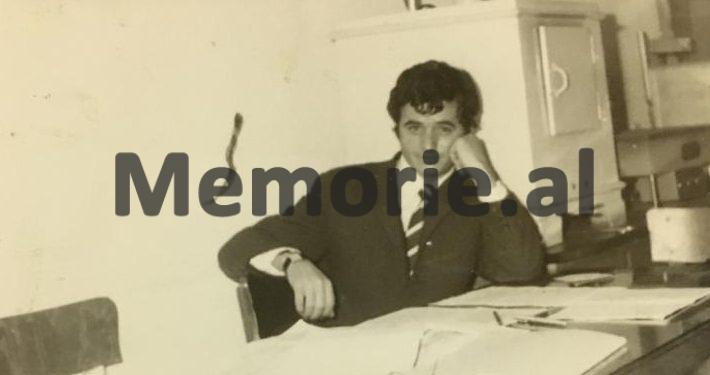

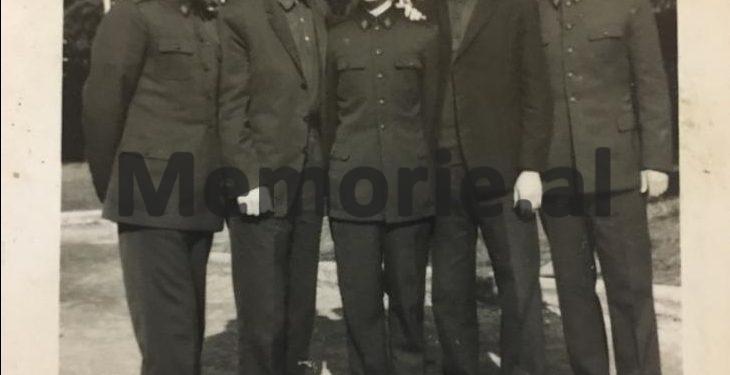
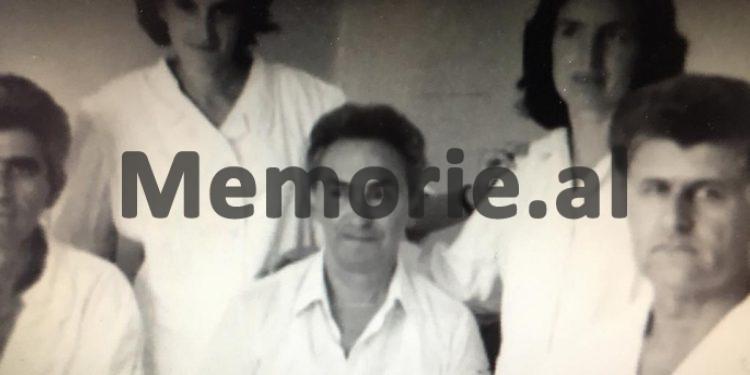
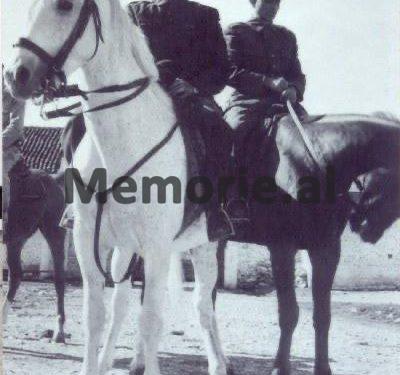


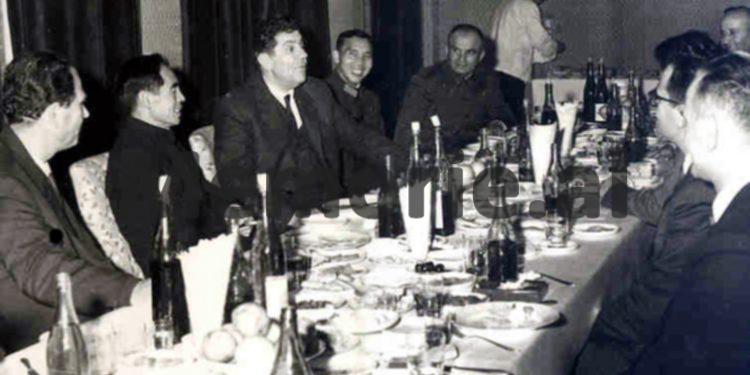

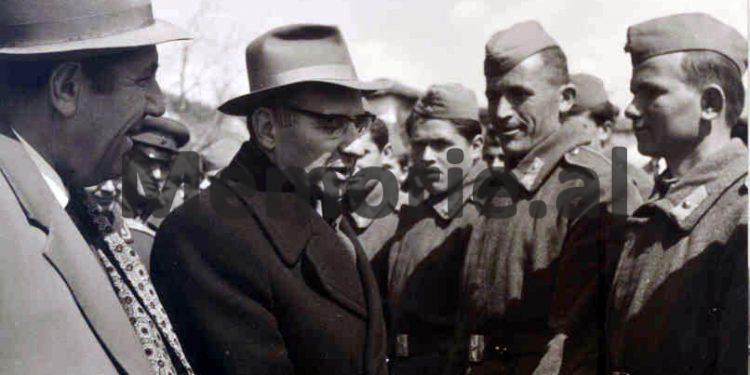
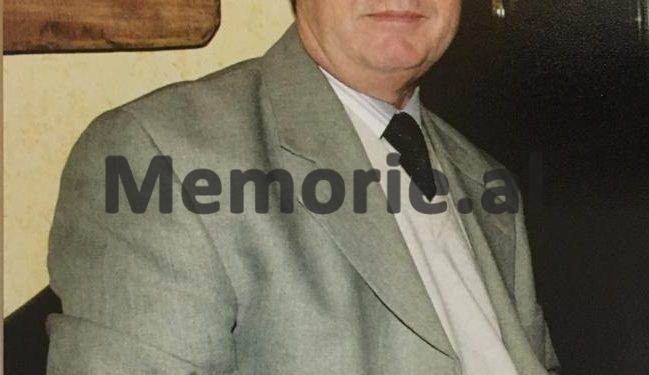

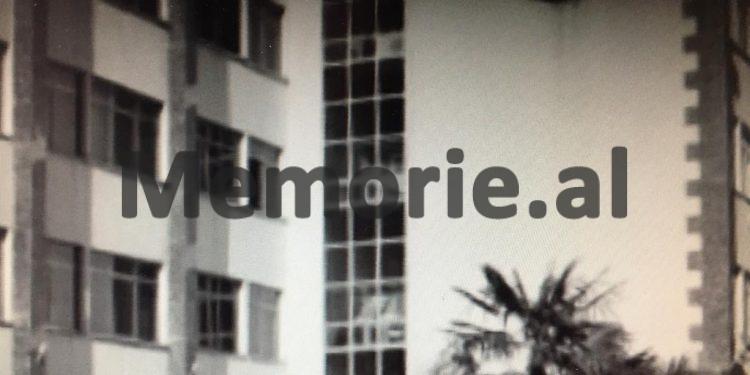


![“The ensemble, led by saxophonist M. Murthi, violinist M. Tare, [with] S. Reka on accordion and piano, [and] saxophonist S. Selmani, were…”/ The unknown history of the “Dajti” orchestra during the communist regime.](https://memorie.al/wp-content/uploads/2026/02/admin-ajax-3-350x250.jpg)
![“In an attempt to rescue one another, 10 workers were poisoned, but besides the brigadier, [another] 6 also died…”/ The secret document of June 11, 1979, is revealed, regarding the deaths of 6 employees at the Metallurgy Plant.](https://memorie.al/wp-content/uploads/2026/02/maxresdefault-350x250.jpg)


